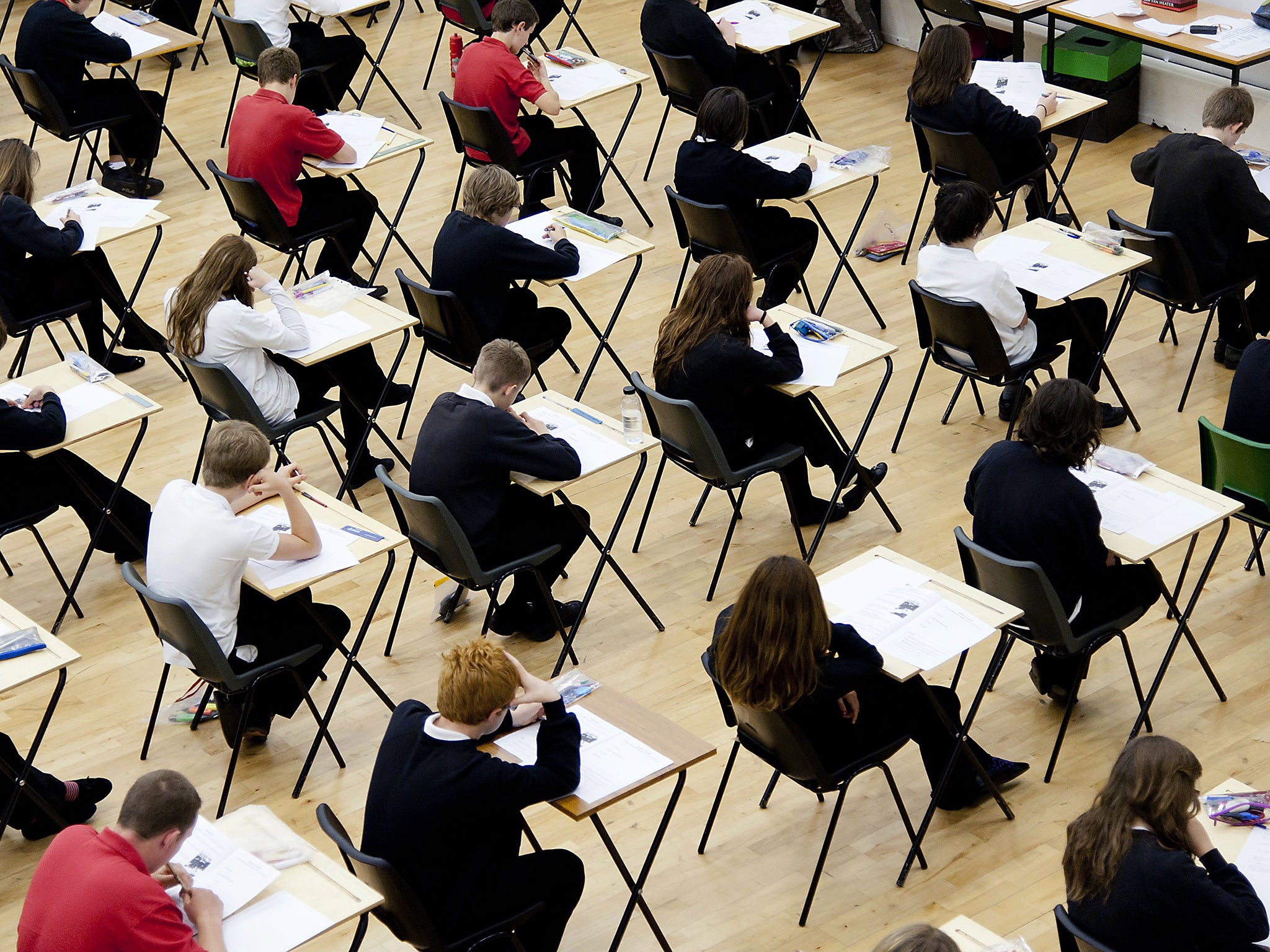Government long way off target for GCSE pupils studying core academic subjects
Unions say the English Baccalaureate is an unnecessary straitjacket for schools and students, reports Eleanor Busby


The government is a long way off its target of 75 per cent students studying a suite of core academic GCSEs by 2022 amid teachers’ concerns about the narrowing of the curriculum.
Two in five students were entered for the English Baccalaureate (EBacc), the government’s league table measure, which is the highest entry rate since it was introduced a decade ago, official figures reveal.
But the Department for Education (DfE) is barely halfway to its target of three in four GCSE pupils studying the EBacc by 2022, and even further away from its 90 per cent target by 2025.
The EBacc, which judges schools on the number of pupils who study maths, English, science, a language and history or geography at GCSE, has been criticised for squeezing out arts subjects.
Education unions say school funding cuts, teacher shortages and a desire to offer a broad curriculum will make it near impossible for the government to hit its target for EBacc entries over the next few years.
Gaps in the proportions of disadvantaged and advantaged students being entered for, and achieving, the EBacc, as well as attainment over eight GCSE grades, have also widened, according to data from the DfE.
Just over a quarter (27.5 per cent) of disadvantaged teenagers were entered for all of the EBacc subjects last year, compared with 44.5 per cent of all other students – a gap of 17 percentage points.
In 2017, the government officially abandoned its plans to require nine in 10 pupils to enter the EBacc by 2020 amid concerns about a dearth of language teachers. The target was instead pushed back to 2025.
Geoff Barton, general secretary of the Association of School and College Leaders (ASCL), said: “The English Baccalaureate is a misguided policy which should be consigned to history.
“It is used to drive uptake in a narrow set of traditional academic subjects which are unquestionably important but which do not suit the needs of all students and marginalise other important subjects such as the creative arts.
“There is also a significant practical difficulty in respect of the foreign language component of the EBacc because there is a severe shortage of language teachers. For all these reasons there is not the remotest possibility of the government hitting its target for EBacc entries.”
Kevin Courtney, general secretary of the National Education Union, said: “Schools are doing their best to hang on to arts and creative subjects in spite of the EBacc as they know the value of a broad education.
“Setting aside the fact that the 75 per cent figure is a completely arbitrary, unevidenced target from government, it is clear that persistent real-terms funding cuts and missed teacher training targets have done much to work against that ambition.“
Paul Whiteman, general secretary of school leaders’ union NAHT, said: “For some pupils, this will be the right selection of subjects, but EBacc should be an entitlement for students not an obligation. At the moment, the EBacc is an unnecessary straitjacket for schools and students.
“The EBacc is not suitable for all, and the obsession with it will mean that children who would benefit from an arts or technical education will miss out.”
Nick Gibb, school standards minister, said: “The EBacc is instrumental in driving up educational standards. Overall more pupils are studying these core academic subjects than at any time since the EBacc measure was introduced and the entry rate is particularly high in our free schools.
“The attainment gap between disadvantaged children and their peers remains stable and is down by around 9 per cent since 2011 – but we recognise there is more to do.
“Multi-academy trusts make a significant contribution in terms of helping disadvantaged pupils with progress rates higher than in other types of school. This is encouraging and shows the benefits that can be achieved under the leadership of a strong trust.”
Join our commenting forum
Join thought-provoking conversations, follow other Independent readers and see their replies
Comments